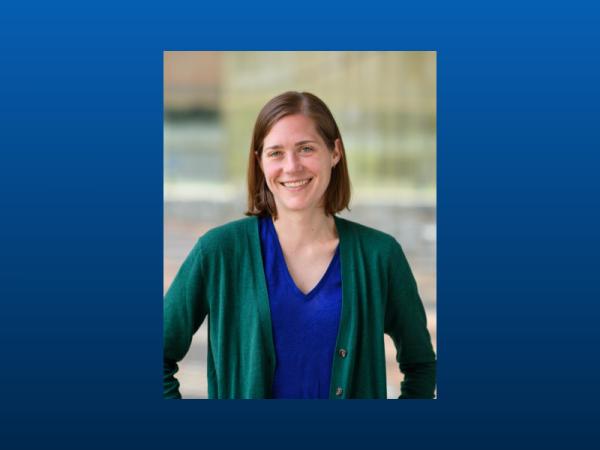The Evolution and Human Adaptation Program (EHAP) Speaker Series: Lifestyle change and health in the Turkana people of northern Kenya
Dr. Amanda Lea, Assistant Professor, Department of Biological Sciences, Vanderbilt University
Abstract:
The environments experienced by individuals living “modern”, “urban”, or “Western” lifestyles are deeply diverged from the ancestral selection pressures that have shaped human genomes through evolutionary time. Consequently, many have hypothesized that this “mismatch” —between evolved human phenotypes and modern life—is responsible for increasing rates of non-communicable diseases worldwide. However, despite the popularity and intuitive appeal of this idea, it has been difficult to test in practice. In particular, we lack direct evidence that health issues emerge when populations adapted to subsistence-level practices encounter modern, urban environments. Further, we lack an understanding of how the many factors that change during urban transitions, including physical activity, diet, early life conditions, and the social environment, interact to ultimately impact health. My research aims to address these gaps, by working with the Turkana people of Northwest Kenya who are currently transitioning from a traditional, pastoralist lifestyle to an urban, market-integrated lifestyle. By collecting genomic, anthropological, and biomedical data from across this lifestyle gradient, my work aims to address 1) how the Turkana have adapted through evolutionary time to their pastoralist lifestyle, 2) the degree to which health and disease risk are altered when individuals from this locally adapted genetic background move to cities, and 3) how early life experiences, social environmental conditions, diet, and other key factors contribute to lifestyle effects on health. Together, this work aims to shed new light on our evolutionary interpretation of environmentally induced disease in a unique population.
The environments experienced by individuals living “modern”, “urban”, or “Western” lifestyles are deeply diverged from the ancestral selection pressures that have shaped human genomes through evolutionary time. Consequently, many have hypothesized that this “mismatch” —between evolved human phenotypes and modern life—is responsible for increasing rates of non-communicable diseases worldwide. However, despite the popularity and intuitive appeal of this idea, it has been difficult to test in practice. In particular, we lack direct evidence that health issues emerge when populations adapted to subsistence-level practices encounter modern, urban environments. Further, we lack an understanding of how the many factors that change during urban transitions, including physical activity, diet, early life conditions, and the social environment, interact to ultimately impact health. My research aims to address these gaps, by working with the Turkana people of Northwest Kenya who are currently transitioning from a traditional, pastoralist lifestyle to an urban, market-integrated lifestyle. By collecting genomic, anthropological, and biomedical data from across this lifestyle gradient, my work aims to address 1) how the Turkana have adapted through evolutionary time to their pastoralist lifestyle, 2) the degree to which health and disease risk are altered when individuals from this locally adapted genetic background move to cities, and 3) how early life experiences, social environmental conditions, diet, and other key factors contribute to lifestyle effects on health. Together, this work aims to shed new light on our evolutionary interpretation of environmentally induced disease in a unique population.
| Building: | West Hall |
|---|---|
| Website: | |
| Event Type: | Presentation |
| Tags: | Talk |
| Source: | Happening @ Michigan from Department of Psychology, Department of Anthropology, Evolution & Human Adaptations Program (EHAP) |


